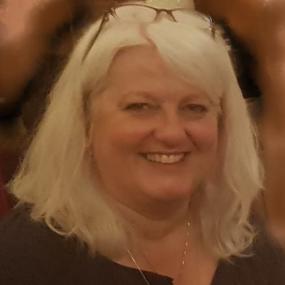Take Chances

Professor Barbara Philips is a Professor of Intensive Care Medicine at Brighton and Sussex Medical School, her research interests are acute kidney injury and pharmacology of critical illness prescribing.
In Life, put your little finger out and if someone pulls it, go with them.
I was told this when I was 20 by Prof Peter Baker (1939 – 1987), of squid neurone action potential fame (KCl). He was telling me to make the best of opportunities which come my way. I have tried to live by this since, and life has been interesting.
The key opportunities I took were to enter a national competition as a medical student run by the British Nutrition Foundation, to do an intercalated BSc despite no funding (a little help from family and work as an auxiliary nurse got me through), to move to Edinburgh despite having a registrar post organised in London, to take 18 months out to do clinical research, a move back to London and finally, to move to Brighton. The 18 months of research was an opportunity from a wonderful group of intensivists in Edinburgh led by Alistair Lee and it set me directly on the path to developing academic interests. I have worked in academic medicine since becoming a consultant and I have loved it. It is sometimes frustrating, but it is never dull and it is always challenging. I have the luxury of independence at work, and I have the fortune of interesting clinical work and great colleagues. It saddens me that more women are not following an academic career or do not consider it an option. I have a lovely family, grown up now and although we have had to muddle through at times it has all worked.
I am not a strict planner. Of course, some plans must be made but these should be broad brush ideas, details rarely work as expected and worse still, opportunities are missed if plans are fixated on.
And this brings me to how academic careers work in intensive care medicine. The system of clinical training is designed to produce ICM specialists who are safe, and competency trained. Training today is far more structured than when I was doing it. This does have some advantages, arguably a structured system safeguards standards and improves fairness but it also creates problems. In my opinion, today’s training risks restricting innovation and opportunity. Rules and timelines must be adhered to and time out of training can be difficult to manage. There are the formal routes to academic training, but these are few and there is a perception by trainees that if the posts are not applied for at the correct time, academic training is no longer an option. This is compounded by limited opportunities within many Trusts and Universities. People who develop an interest in research late in training cannot see it as an option for development. Women particularly dismiss research as an interest because they think that cannot do it, or it won’t fit within plans.
My suggestions to anyone out there who would like to do research is, dare to be different, take opportunities which come your way, try not to worry about exactly what will happen next, expectations are usually wrong, and enjoy what you are doing. A career in academic medicine should be more than a job, if it is you will enjoy it. I would also ask Universities and Trusts to develop local opportunities, these do not need to be expensive and the rewards over time will produce dividends in reputation and staff satisfaction/retention.
If you are thinking about a career in research, take a chance.
Related Content
Written by Dr Laura Coleman
Written by Dr Alexandra Kendall-Smith
Written by Dr Emily Reynolds

